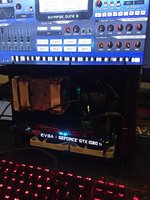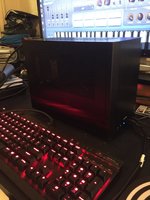(1) The graph has changed today.
(2) It seems to show a reduction in AMD marketshare to sub 20 percent levels. Let us revisit this topic in one week when this quarter data self-averages itself.
(3) No media reported the graph yesterday. The media only make noisy news when the graph seemed to show an huge increase in AMD share in July. And no one of the media that published fake information in July retracted or updated the articles, when accurate data was available latter.
Ok, it is a week later. Daily fluctuations seem to vanish and the graph continues showing a lost of marketshare for AMD
Q3 2017 22.30%
Q4 2017 21.90% (Today)
https://www.cpubenchmark.net/market_share.html
![[H]ard|Forum](/styles/hardforum/xenforo/logo_dark.png)


